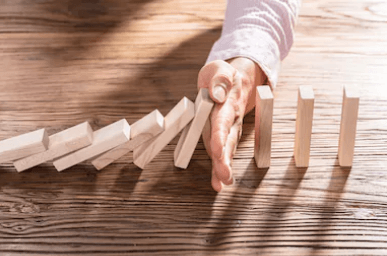Walk through the halls of just about any hospital in America, and pinned on the doors of rooms where older patients stay are often reminders for nurses, doctors and other caregivers: fall risk.
At the same time, these hospitals will announce when they have a streak of days without someone falling. It is a point of pride for several reasons, not only does it keep a patient safe, but hospitals save money for possible government penalties related to falls.
Those issues highlight the importance and to what degree falls are held in the healthcare of people today.
Over 800,000 patients a year are hospitalized because of a fall injury, most often because of a head injury or hip fracture, according to the Centers for Disease Control and Prevention.
Prevention
Preventive measures are increasingly important, as people get older. Falls can cause serious injuries, such as broken bones to the wrist, arm, ankle and hip fractures. Falls are the most common cause of traumatic brain injuries. Unfortunately, it appears falls are increasing.
Worried About Falling? No good.
Just the prospects of falling make some people fearful. That alone may curtail someone’s everyday activities, and their enjoyment of life. Another problem is that too many people don’t tell their doctors that they fell – less than half – and once someone falls, that doubles their risk of falling again. Some people also may have issues with mobility, their gait or balance that may place them at greater risk
Fall Differences in the sexes
Women who fall tend to suffer hip fractures, while men are more likely to incur head or brain injuries.
Chinese Traditional Medicine and Fall Prevention
In Chinese traditional medicine, movement therapies such as Tai Chi and Qi Gong programs are targeted at promoting balance and core strength, and help prevent falls. They are considered stability, balance and weight-bearing exercises.
Tai Chi may reduce the incidence of falls more than conventional lowering extremity training in the elderly, according to researchers. Tai Chi’s practice of graceful movements helps people become aware of their position of the body. A 2015 study published in the journal Arthritis & Rheumatism found evidence that the exercise also can help with osteoarthritis, the most common joint disease in midlife, by “improving mobility, reducing stiffness and helping ease pain,” according to AARP.
Acupuncture therapy also can help prevent falls by stimulating the body’s natural muscle response also in a way that leads to improved muscle tone and stability.
Herbs, particularly tonic herbs, are known to be helpful in supplementing the deficient Yin-Yang in the body, and strengthen the body by providing the compounds needed boost the immune system. In Chinese medicine regenerating herbs are called tonic or supplemental herbs. Among the tonic herbs often cited to help in achieving balance are: agaricus mushroom, albizzia bark and flower, American Gingseng root, asparagus root, cistanche and cordyceps.
Exercise
Older people who are weak or unsteady on their feet or need assistance in daily living tasks are probably most vulnerable to falls, which can lead to greater decline.
In numerous countries worldwide, fall prevention among older adults is a major public health issue. Indeed, for older adults, regular participation in moderate physical activity or exercise lowers the risk of falls.
Exercise that focuses on increasing lower body, leg strength and improving balance are also important to help prevent falls. U.S. Supreme Court Ruth Bader Ginsburg is well known for a vigorous workout schedule that helps her maintain fitness. She is 85 years old.
Tips To Prevent Falls
You can reduce your risks by making some cautionary measures:
- Review your medications, both prescription and over-the-counter, to identify medicines that might cause side effects or interactions such as dizziness or drowsiness. When blood pressure or blood sugar dips too low, lightheadedness can occur and cause a fall.
- Ensure your footwear is OK.
- Have your eyes checked at least once a year and update your glasses.
- Reduce potential tripping hazards, and keep objects out of the way of walkways or stairs, such as cords or furniture. Don’t put them under the carpets.
- Install bars near a tub or shower, or add railings near stairs.
- Improve lighting in the house.
- Replace or remove carpet that is torn or has turned up edges.
Osteoporosis and Falls
Osteoporosis is characterized by a decrease in bone density, which impacts bone strength and can result in fragile bones, leading to falls. That can lead to more bone fractures or breaks. Doctors should check for osteoporosis if patients are in fragile condition. For patients who have been prone to falling, psychological and cognitive health issues also should be examined.
What Hospitals Should Do
As for those hospitals, the U.S. government’s Joint Commission has issued an alert about falls in hospitals, saying it wants healthcare facilities to pay more attention to falls and fall-related injuries and to implement proven prevention strategies.
References:
- Chang, M, Lin C, et al. Eight forms of moving medication for preventing falls in community-dwelling for middle-age and older adults. 2013. Forsch Complementary Medicine. 2013; 20 (5): 345-52. Doi: 10. 1159/000355842.Epub 2013.
- Chan, WC, Yeung, JW, et al. Efficacy of physical exercise in preventing falls in older adults with cognitive impairment: a systematic review and meta-analysis. Journal of the American Medical Directors Association. 2015. Feb: 16 (2): 149-54. Doi: 10.106/j.jamda/2014.08.007. Epub 2014. Oct.7.
- Centers for Disease Control and Prevention. 2018. Home and Recreational Safety: Important Facts About Falls
- California Institute of Integral Studies. 2018. Health Coachs and Acupuncturists Team Up to Reduce Falls Among the Elderly.
- C. Shiel, Jr, MD, Catherine Burt Driver, MD. MedicineNet.Com Osteoporosis:
- Barbara Stapko, 2018. Try Tai Chi for a Variety of Health Benefits. AARP
- From Ron Teeguarden. Tonic Herbs That Every Qigong Practitioner Should Know. “Tonic Herbs that Every Qigong Practitioner Should Know,” Journal of Traditional Health and Fitness. Courtesy of Plum Garden.
- https://anjunamedicine.com/slip-and-fall-injury-in-older-adults-an-overview-and-how-acupuncture-can-help/
- https://www.medscape.com/viewarticle/851897
- https://agelessherbs.com/tonic-herbs/

